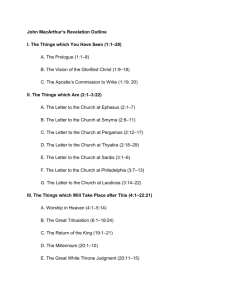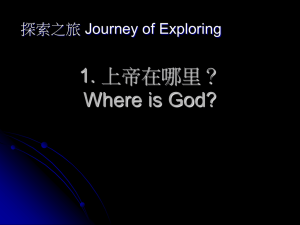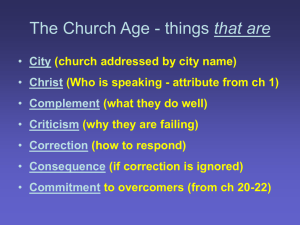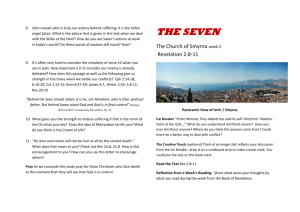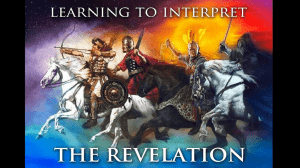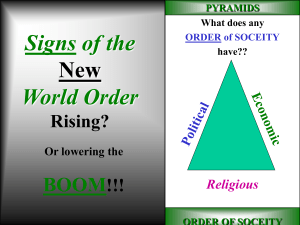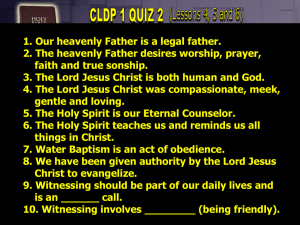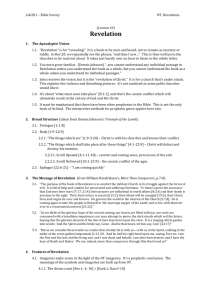Word - A Congregation of the Church of God
advertisement
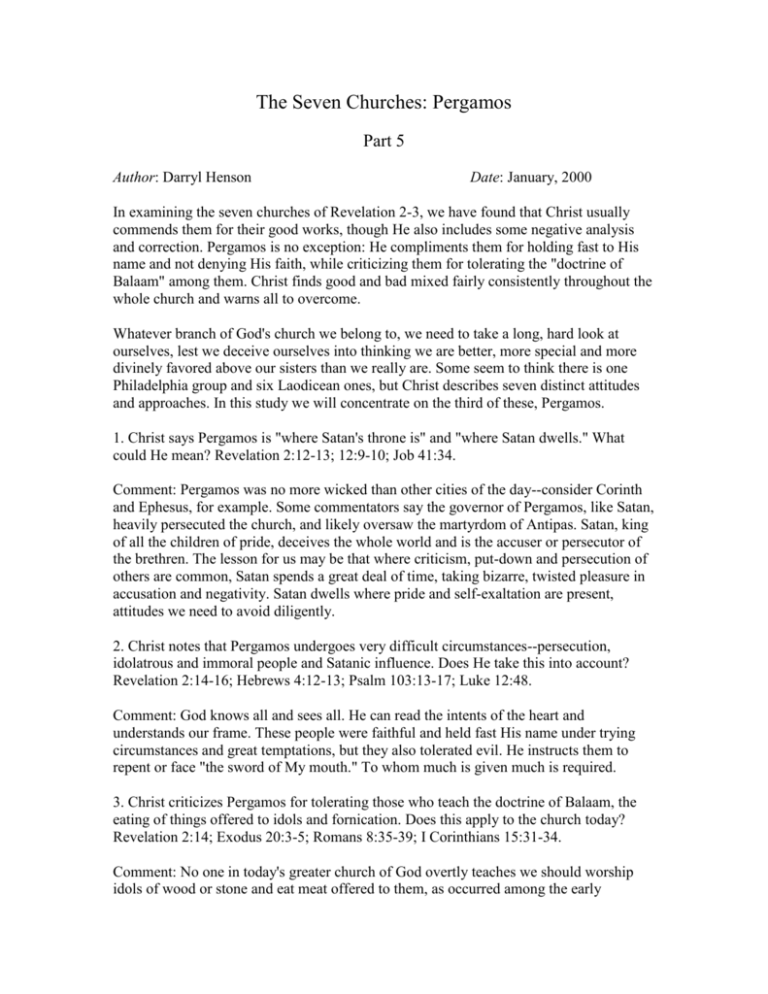
The Seven Churches: Pergamos Part 5 Author: Darryl Henson Date: January, 2000 In examining the seven churches of Revelation 2-3, we have found that Christ usually commends them for their good works, though He also includes some negative analysis and correction. Pergamos is no exception: He compliments them for holding fast to His name and not denying His faith, while criticizing them for tolerating the "doctrine of Balaam" among them. Christ finds good and bad mixed fairly consistently throughout the whole church and warns all to overcome. Whatever branch of God's church we belong to, we need to take a long, hard look at ourselves, lest we deceive ourselves into thinking we are better, more special and more divinely favored above our sisters than we really are. Some seem to think there is one Philadelphia group and six Laodicean ones, but Christ describes seven distinct attitudes and approaches. In this study we will concentrate on the third of these, Pergamos. 1. Christ says Pergamos is "where Satan's throne is" and "where Satan dwells." What could He mean? Revelation 2:12-13; 12:9-10; Job 41:34. Comment: Pergamos was no more wicked than other cities of the day--consider Corinth and Ephesus, for example. Some commentators say the governor of Pergamos, like Satan, heavily persecuted the church, and likely oversaw the martyrdom of Antipas. Satan, king of all the children of pride, deceives the whole world and is the accuser or persecutor of the brethren. The lesson for us may be that where criticism, put-down and persecution of others are common, Satan spends a great deal of time, taking bizarre, twisted pleasure in accusation and negativity. Satan dwells where pride and self-exaltation are present, attitudes we need to avoid diligently. 2. Christ notes that Pergamos undergoes very difficult circumstances--persecution, idolatrous and immoral people and Satanic influence. Does He take this into account? Revelation 2:14-16; Hebrews 4:12-13; Psalm 103:13-17; Luke 12:48. Comment: God knows all and sees all. He can read the intents of the heart and understands our frame. These people were faithful and held fast His name under trying circumstances and great temptations, but they also tolerated evil. He instructs them to repent or face "the sword of My mouth." To whom much is given much is required. 3. Christ criticizes Pergamos for tolerating those who teach the doctrine of Balaam, the eating of things offered to idols and fornication. Does this apply to the church today? Revelation 2:14; Exodus 20:3-5; Romans 8:35-39; I Corinthians 15:31-34. Comment: No one in today's greater church of God overtly teaches we should worship idols of wood or stone and eat meat offered to them, as occurred among the early churches Paul administered. Nor does anyone openly teach fornication as a personal or religious practice, as happened in the Temple of Diana at Ephesus. However, anything that comes between us and devotion to God, including self-worship, is an idol, and any concourse with this world that diverts our attention from Him is spiritual fornication. Paul slew the idol of self daily. We too often tolerate spiritual idolatry and fornication in ourselves and others, giving Christ plenty of fodder for His criticism. 4. Some in Pergamos also held the doctrine of the Nicolaitans, as in Ephesus. What about it does Christ hate so much? Revelation 2:6, 15; Ephesians 1-6 (especially 2:1-3; 4:17-22, 30-31). Comment: Though no one seems to know just who these people were, an examination of Ephesians, written by Paul to "the church at Ephesus" may give some important clues. A frequent companion of idolatry is illicit, sensual pleasures. If we place anything ahead of God, it is generally for personal pleasure and self-fulfillment, centering on the works of the flesh, vanity, pride, power and social standing. These Paul decries in Ephesians (for more detail, see the article on Ephesus). 5. To those of Pergamos who repent, Christ will allow to eat of the hidden manna and give them a white stone engraved with a new name, known only to themselves. Does this set them apart as special? Revelation 2:17. Comment: The manna that fed Israel was spread on the ground for all to see and gather (Exodus 16:4, 35). Hidden manna, symbolizing God's Word, is concealed from the rest of the world; it is special insight from God that feeds the soul and sustains spiritual life. In the ancient world, a white stone was given to one under judgment as an absolution from guilt, a black stone to the condemned. A white stone signifies innocence through forgiveness and grace to enter the Kingdom of God. The new name reflects the holy character built by the repentant overcomer. These gifts, though certainly special and wonderful, are available to every true child of God.
